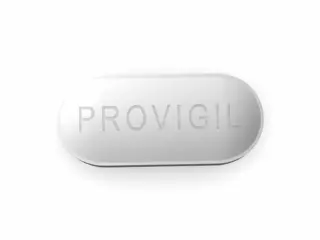Mental Health
Discover a wide selection of trusted mental health products to support your well-being. Find effective supplements, medications, and wellness aids designed to help manage stress, anxiety, depression, and improve mood. Shop now for reliable solutions to maintain your mental balance and enhance daily life.
Mental health medications play a vital role in managing various psychiatric conditions. Many patients rely on these drugs to improve their quality of life. This review covers some popular medications available in the mental health category. Each has unique features, uses, and side effects.
Anafranil (clomipramine) is a tricyclic antidepressant. It is commonly prescribed for obsessive-compulsive disorder (OCD) and depression. Anafranil works by increasing serotonin and norepinephrine levels in the brain. This helps improve mood and reduce anxiety. Some common side effects include dry mouth, dizziness, and weight gain. It may take several weeks to feel the full benefit. Regular monitoring by a doctor is recommended to adjust the dose safely.
Buspar (buspirone) is used primarily for anxiety disorders. It differs from benzodiazepines by having a lower risk of dependency or sedation. Buspar acts on serotonin receptors to control anxiety symptoms. Patients usually experience improvement within 2 to 4 weeks. Side effects can include dizziness, headaches, and nausea. Buspar is often prescribed when long-term anxiety management is needed without the risk of addiction.
Clozaril (clozapine) is an antipsychotic designed for treatment-resistant schizophrenia. It helps reduce hallucinations, delusions, and improve thinking. Clozaril is highly effective but has serious potential side effects. These include agranulocytosis, a drop in white blood cells. Due to this risk, patients require regular blood testing. Other side effects may include sedation, weight gain, and seizures. Clozaril is usually considered when other antipsychotics fail to work.
Compazine (prochlorperazine) is mainly an antiemetic used to control nausea and vomiting. However, it also serves as an antipsychotic in certain mental health conditions. It blocks dopamine receptors in the brain. This action helps manage symptoms like severe agitation, psychosis, or severe anxiety. Common side effects are drowsiness, dry mouth, and dizziness. It should be used cautiously due to potential extrapyramidal symptoms, such as muscle stiffness.
Lithobid (lithium) is a mood stabilizer, considered the gold standard for bipolar disorder treatment. It helps prevent both manic and depressive episodes. The exact mechanism is not fully understood but involves regulation of neurotransmitter activity. Blood levels must be monitored closely because lithium toxicity risk is high. Side effects can be mild, such as increased thirst and tremors, or severe like kidney problems. Regular kidney and thyroid function tests are essential during treatment.
Loxitane (loxapine) is an antipsychotic used for schizophrenia and acute psychosis. It works by blocking dopamine receptors to reduce hallucinations and disorganized thoughts. Loxitane may cause sedation, dry mouth, and dizziness. It is sometimes preferred for patients who do not tolerate other antipsychotics well. Monitoring for extrapyramidal symptoms is important during treatment.
Mellaril (thioridazine) was once popular for treating schizophrenia. It is a typical antipsychotic known for sedation and anticholinergic effects. Mellaril fell out of favor due to its risk of heart-related side effects, especially prolonged QT interval causing arrhythmias. If used, regular cardiac monitoring is essential. Today, it is rarely prescribed except in specific cases where other drugs are ineffective.
Skelaxin (metaxalone) is a muscle relaxant rather than a direct mental health drug. However, it is sometimes used to relieve muscle tension and spasms related to anxiety or stress. It works by acting on the central nervous system, helping patients relax physically. Side effects are usually mild and include drowsiness and dizziness. Skelaxin is often used as an adjunct in mental health treatment plans.
Strattera (atomoxetine) is a non-stimulant medication for attention deficit hyperactivity disorder (ADHD). Unlike stimulants, it does not carry a high risk of abuse. Strattera works by increasing norepinephrine levels in the brain. This helps improve attention span and reduce impulsivity. Side effects include stomach upset, fatigue, and mood swings. It may take several weeks before full effects are noticeable.
Thorazine (chlorpromazine) was among the first antipsychotics developed. It is still used to treat schizophrenia, severe nausea, and acute psychosis. Thorazine blocks dopamine receptors to calm the brain. Side effects can include sedation, weight gain, dry mouth, and extrapyramidal symptoms. Due to newer drugs with fewer side effects, Thorazine is less commonly prescribed today. However, it remains important where other treatments fail.
In summary, mental health medications vary widely in their uses, mechanisms, and side effect profiles. Selecting the right drug depends on the diagnosis, patient history, and response to treatment. Many require close medical supervision to manage side effects safely. Understanding these medications helps patients and caregivers make informed decisions and promotes better treatment outcomes.















